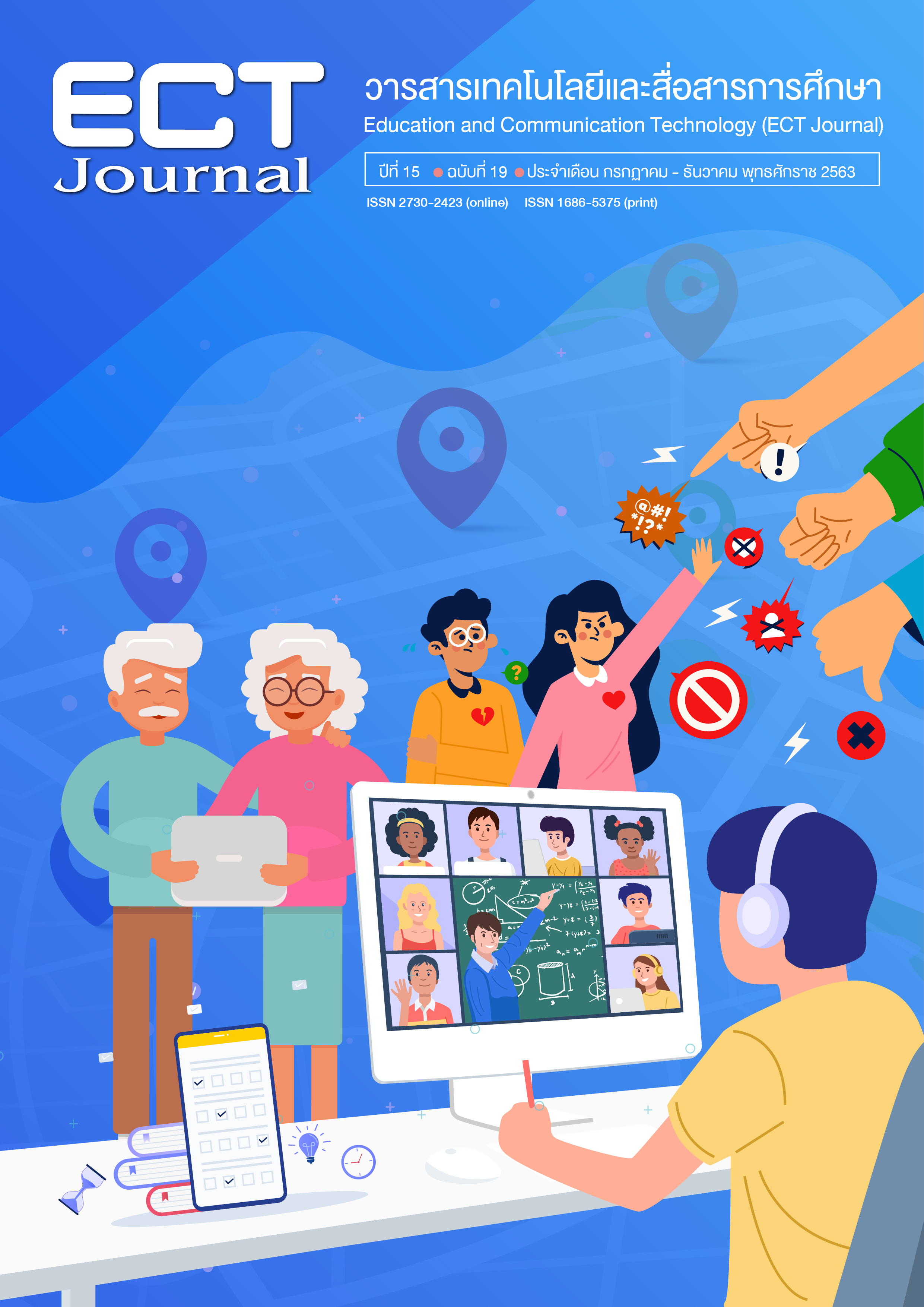Effects of Gamification Techniques on Improving Grade 8 Students’ Classroom Engagement at Boriboonsilp Rangsit School
Keywords:
Gamification, Student’s engagement, Educational InnovationAbstract
This classroom action research aimed to 1) study the student’s classroom engagement
before and after using the gamification techniques and 2) compare the average number of student’s classroom engagement before and after using the gamification techniques. The population were grade 8 students in Boriboonsilp Rangsit School who were studying Principle English course during the 2nd semester of the academic year 2019. The number of the students were 37, chosen by purposive selection.The research instruments were 1) three gamification-based English lesson plans 2) gamification-based learning activities and 3) an observation form of the classroom engagement. The data were analyzed by descriptive statics which are frequency, mean ( ), and difference value (D). The results of comparing the classroom engagement before and after using the gamification technique showed that the positive engagement has no different, and the negative engagement was different with the significant level of .05.
References
เกศรา อุบลแก้ว, ณาวา ลาเตะ, คอซีหมะ สมะแอ และมัฮดี แวดราแม. (2561). ผลการใช้ Gamification ต่อความสนใจในการเรียนรายวิชาการสร้างหนังสืออิเล็กทรอนิกส์ 1 ของนักเรียนชั้นมัธยมศึกษาปีที่ 1 โรงเรียนจะนะชนูปถัมภ์. ใน การประชุมวิชาการระดับชาติการเรียนรู้เชิงรุก ครั้งที่ 6 “Active Learning ตอบโจทย์ Thailand 4.0 อย่างไร”. มหาวิทยาลัยวลัยลักษณ์, 123-125.
ประภาวรรณ ตระกูลเกษมสุข. (2559). การประยุกต์ใช้รูปแบบการเล่นวิดีโอเกมในการเรียนการสอนที่มีต่อการพัฒนาพฤติกรรมการเข้าชั้นเรียน การมีส่วนร่วม และผลสัมฤทธิ์ทางการเรียนของนักศึกษาระดับปริญญาตรี. ในการประชุมหาดใหญ่วิชาการระดับชาติและนานาชาติครั้งที่ 7. มหาวิทยาลัยหาดใหญ่, 180-192.
สิทธิชัย สระตอมูฮัมหมัด. (2560). การพัฒนากิจกรรมการเรียนรู้โดยใช้เทคนิคเกมมิฟิเคชัน เพื่อยกระดับผลสัมฤทธิ์ทางการเรียนวิชาคณิตศาสตร์ เรื่อง ระบบสมการเชิงเส้น ชั้นมัธยมศึกษาปีที่ 3 โรงเรียนสวนกุหลาบวิทยาลัย ธนบุรี. เข้าถึงใน http://www.ska2.go.th/reis/data/research/25611231_115423_0945.pdf. สืบค้นเมื่อ 30 เมษายน 2563
สุรพล บุญลือ. (2560). การวิจัยโดยใช้เกมมิฟิเคชันเป็นฐานสำหรับการเรียนรู้ในศตวรรษที่ 21. เข้าถึงใน https://www.slideshare.net/SuraponBoonlue/ss-73604198. สืบค้นเมื่อ 9 มิถุนายน 2562.
อรจรีย์ ณ ตะกั่วทุ่ง. (2545). สุดยอดพัฒนาการเรียนการสอน. กรุงเทพฯ: เอ็กซเปอร์เน็ทบุคส์.
Bunchball. (2010). What is gamification?. [Online]. Available from: https://www.bunchball.com/gamification. Retrieved June 8, 2019.
Graham, C.R., Tripp, T.R., Seawright, L., & Joeckel, G.L. (2007). Empowering or Compelling Reluctant Participators Using Audience Response Systems. Active Learning in Higher Education. 8(3), 233–234.
Downloads
Published
How to Cite
Issue
Section
License
1. ทรรศนะและข้อคิดเห็นใด ๆ ที่ปรากฏอยู่ในวารสาร ECT Education and Communication Technology Journal เป็นของผู้เขียนโดยเฉพาะ สำนักเทคโนโลยีการศึกษา มหาวิทยาลัยสุโขทัยธรรมาธิราช และกองบรรณาธิการไม่จำเป็นต้องเห็นพ้องด้วย
2. กองบรรณาธิการของสงวนลิขสิทธิ์ในการบรรณาธิการข้อเขียนทุกชิ้น เพื่อความเหมาะสมในการจัดพิมพ์เผยแพร่






